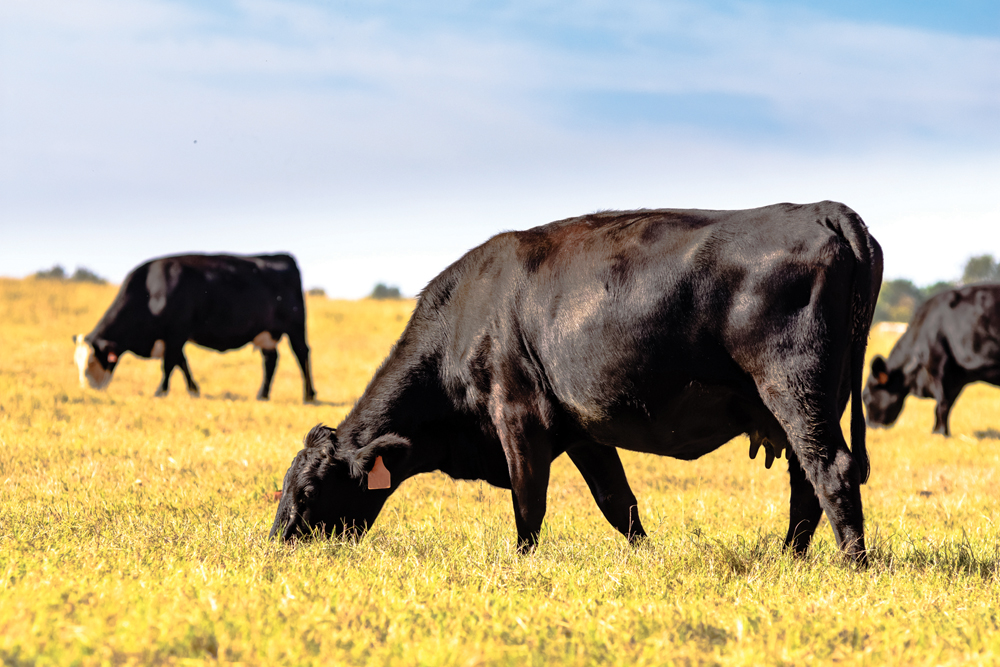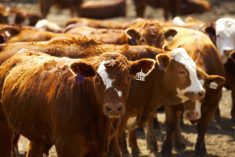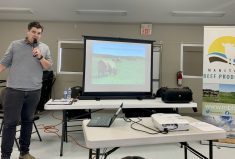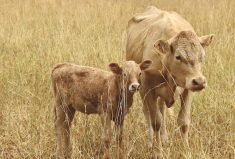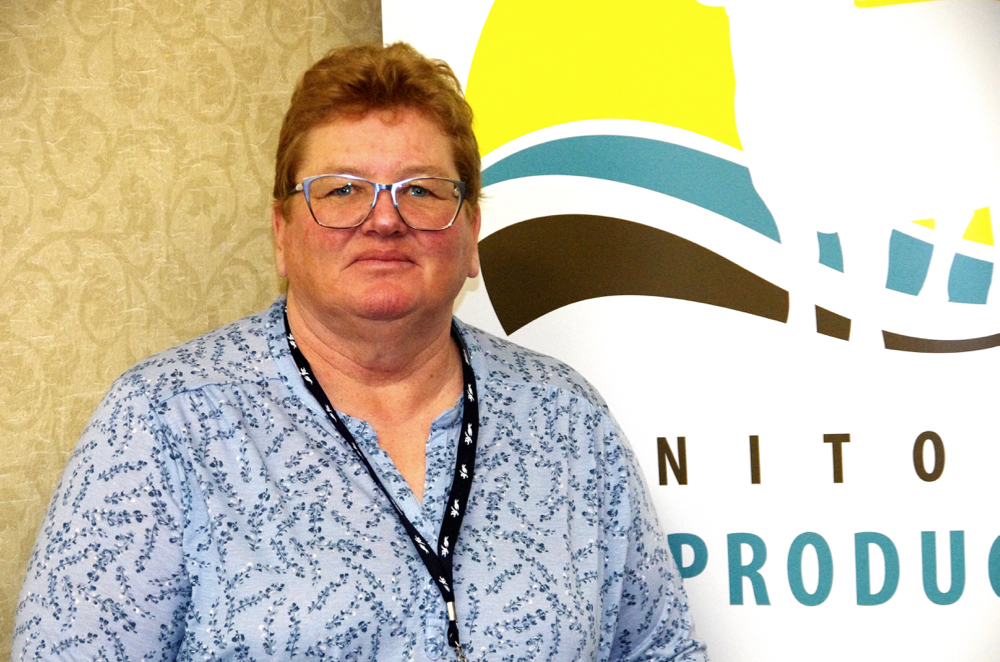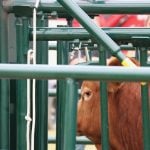Manitoba Beef Producers is proposing a carbon pricing policy centred around recognizing its sector as part of the solution.
Pastures and grassland play a key role in carbon sequestration and greenhouse gas reduction, the organization said.
“We believe we have a valuable role to play in helping Manitoba achieve its goal of reducing GHGs,” said MBP general manager Brian Lemon.
MBP’s policy includes six recommendations that call for exempting their industry from paying carbon taxes, investments in research and also policies that encourage agricultural land be maintained in — or returned to pasture and forage lands.
Read Also
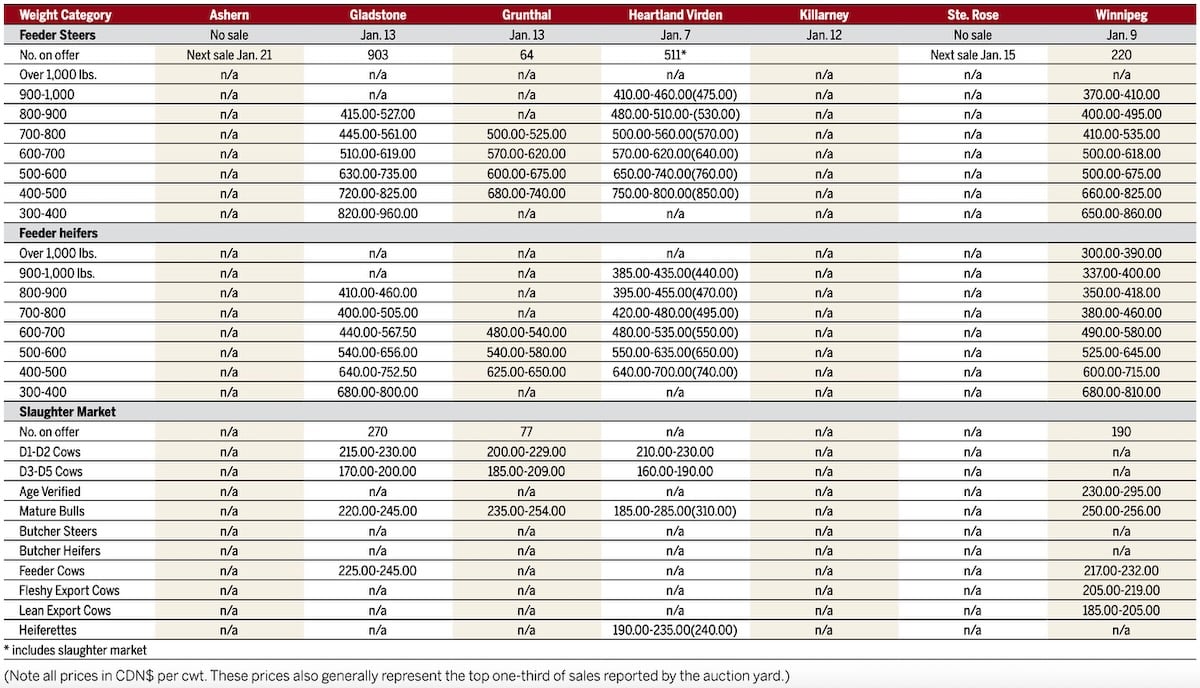
Manitoba cattle prices, Jan. 15
Manitoba is currently seeking input on its Climate and Green Plan related to carbon pricing, reducing greenhouse gas emissions, agriculture and land use, and wetland management
The beef industry’s sustainability is directly linked to achieving these goals, and it’s critically important this sector remain sustainable if the government’s goals in GHG reductions are going to be met, said Lemon.
Key among the six recommendations is an exemption from paying carbon tax for the sector’s on-farm emissions.
That kind of additional cost can’t be passed along and will put an extra economic burden on an industry with already thin margins, Lemon said.
The wrong approach is punitive policies that hurt beef producers economically, he said.
“Beef producers are price-takers, not price-setters,” he said. “There’s a concern throughout the industry that the burden of the carbon taxes will be piled on or will be passed along to them. This would be an added economic or competitive burden for our members and threaten the sustainability of their operations especially when we look at given how thin the margins already are.”
The right approach includes enacting policies that will support cattle production and enable it to provide key valuable ecosystem services, said MBP president Ben Fox.
Not only has the beef industry been steadily reducing its own carbon footprint, but by keeping grasslands intact across the country helps sequester carbon equivalent to more than 3.5 million cars a year, he said.
A kg of beef raised today now produces 15 per cent less GHG that in 1981, for example.
“Beef producers are continuously improving production methods,” he said. “We responsibly manage tens of thousands of acres of land where carbon is sequestered and habitat for wildlife and wetlands are preserved.”
The carbon pricing policy calls for more research to continue down that path, as well as investment in initiatives that will help enhance producer resilience in the face of climate change and severe weather events.
The beef industry has taken a very severe hit from flooding events in the past, and infrastructure that helps stem overland flooding would be one way to build more resilience across farm country, Lemon said.
“When we do have severe weather, cattle producers are the hardest hit and first hit. We feel the impact most dramatically.”
MBP is also looking for an incentives-based program that could potentially include payments for ecological services provided by producers and return revenues generated by carbon taxes for reinvestment in research in improved forage varieties or grazing strategies that help further reduce emissions.
MBP is also calling for policies that encourage agricultural land to be maintained in — or returned to — pasture and grasslands to enhance the environmental benefits these landscapes already provide in terms of wildlife habitat and wetland preservation.
“Manitoba beef producers certainly want to be part of the solution,” said Lemon.
“A profitable beef industry in Manitoba is essential to protecting these grasslands and pastures from encroaching pressures as well as achieving other environmental and conservation objectives.”
Earlier this month MBP announced it will lead a three-year project in Manitoba providing financial incentives to producers who adopt management strategies that protect habitat for grassland birds.
The project is supported with $750,000 from Environment and Climate Change Canada’s Species at Risk Partnerships on Agricultural Lands (SARPAL) program.




